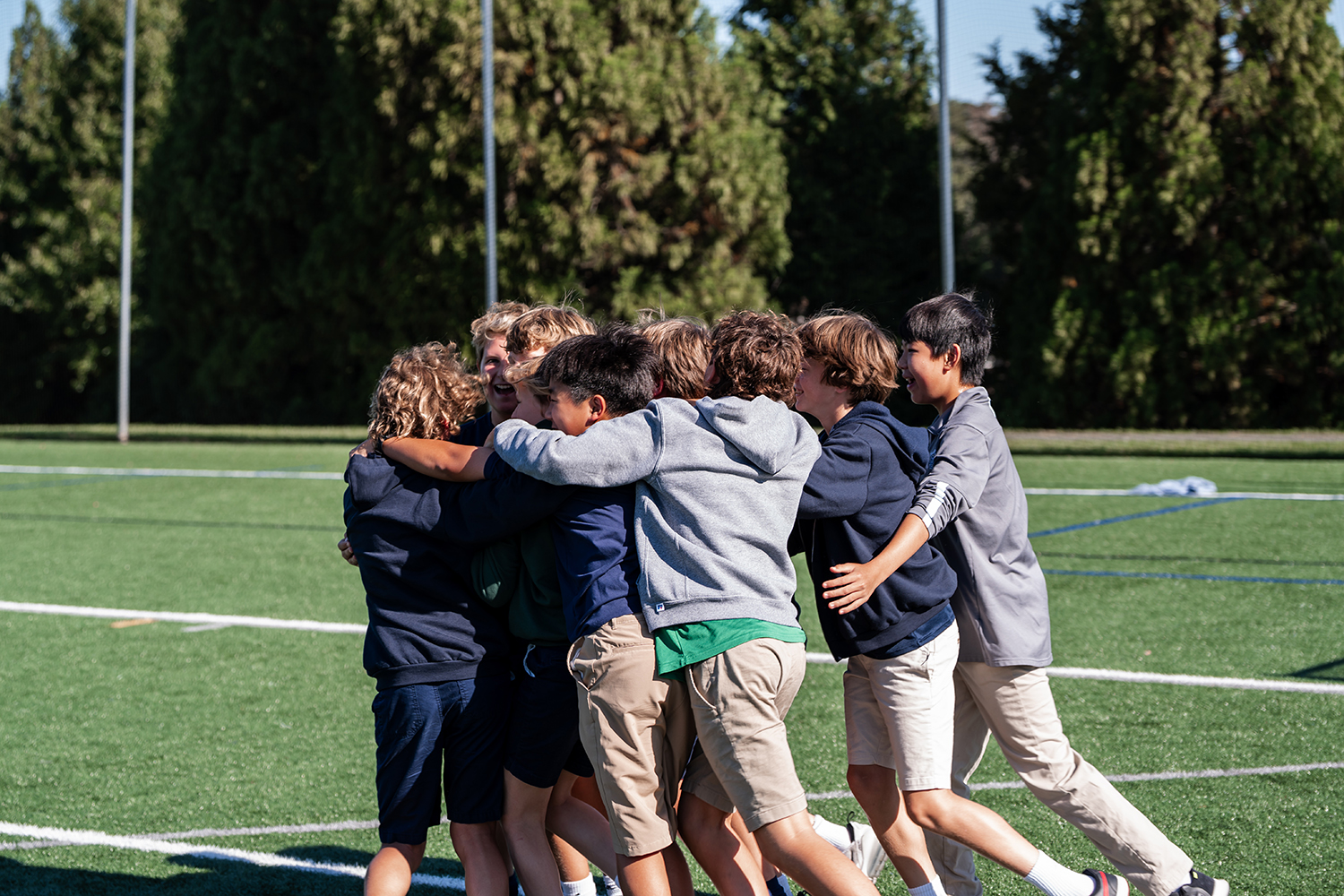LEARN MORE ABOUT FLINT HILL
HUSKY HIGHLIGHTS

May 3, 2024
By Don Paige, Director of the Upper School
Six Things You Need to Know Before Your Student Starts 9th Grade
As a parent of an incoming 9th grade student, you might be wondering how to prepare for this big transition in your teenager’s life. We asked Director of the Upper School Don Paige what he wished parents knew before their students started high school. Here are six key pieces of advice he gave us.
Watch the video above (5 minutes) or read the transcript below.
1. Most students need more structure than you might think.
Students thrive with a lot more structure than we probably needed to give them 10 to 15 years ago. And so as a 9th grade parent, I'm probably going to have that conversation with my child at the beginning of the year: When's your plan for homework? When's your plan to also be social and interact with your friends? If you're going to do the musical in the spring, let's think about how we're going to plan our time the rest of the year. And that's a really important thing, because I think we sometimes think about how we were as students or how we envision students in high school. But students are different. And so helping them with those structures in the long run creates great advantages for them.
2. Help them focus and avoid distractions. Put away their phone.
Some students, for whatever reason, don't seem to be distracted. For other students, it's deeply difficult. They are deeply receiving dopamine pops that say, “look at this ad, look at this Instagram post. Let's check on Snapchat real quick.” And so you have to gauge for your own child what they're going through. But if you start to see that your child is struggling to complete things they need to complete, the best thing to do is to try and remove a lot of these distractions.
So that really is taking the phone away. That really is saying “We're going to do homework on the dining room table.” Because the more structure you can put, and if the student knows there's no possibility for that distraction, they're not thinking about it.
This is why most schools nowadays tell students, “We won't let you have your phone, even in your pocket,” because there's great data that says even if the phone is not out, if you can feel it in your pocket, it is sending you stimuli that's distracting you.
3. Plan, but be ready for changes.
You should plan what the high school experience can be like for classes and sports and activities, but be ready for changes. It's great to have a plan. It's great to know where you want to be as a junior, where you want to be as a senior, but also know things will change along the way. The child will change along the way. At some point, they're going to get interested in something that you did not think they would be interested in 8th grade. And so plan, but be flexible for what that plan will look like.
4. Be thoughtful when selecting courses.
When the course selection process begins, you really want to have a conversation with your student. Recently, I was observing a class. I love to see all the teachers teach. We were going to sign up for classes on a Friday, and this was a Thursday. And then I watched two students next to me, and one student looked at their friend and said, “Hey, let's sign up for classes real quick and just pick the same stuff.” And within 15 seconds they had signed up for their classes for next year.
Though I appreciate they want to be with their friends, that's not the best way for us to connect and find out what the right classes for each student. And so you'll get information from the school about when that process begins. We really encourage both students and parents to work with their child's advisor to think, what are the right courses for my child? What's the path that they're trying to take? What's the right amount of advanced-level courses to take? And this becomes, again, to the point of each child being different, is even if you know another student that's doing more advanced or less advanced, neither of those might match what your child needs.
5. Encourage your student to communicate with their teachers.
The other part that I often tell 9th grade parents is the students are going to come and share their experiences with you when they get home. It's always really useful to reach out to the teacher to hear about the other components of that experience, to compare the two experiences with what happened in that classroom. To think about what is going on and how can I better support.
When a student becomes a 9th grader, we really push the start of self-advocating. And that might be something such as they're not sure why they lost points on something, or they didn't receive a course recommendation for a level that they thought they would receive. That's a difficult thing for a student to then walk in and say, “Can I talk to you about this?” But that's what we want students to do, because we know in the long run that's going to help them in college, and it's going to help them in the real world.
If at the end of that conversation, the student still doesn't feel like they received the information they needed, or they still don't feel like they understand the situation, that's a great time for them to talk to their parent and say, “I was wondering if you could talk to the teacher now. I've tried to have this conversation and I still don't really understand what happened.” And so the parent, the teacher can then compare information and work together to start there.
Of course, after that, if there are still questions about policies or concerns, you can then talk to a department chair or then to eventually the academic team. And sometimes it ends up being a conversation with me, which I'm always welcome to.
6. Ask Questions.
And then the last thing I always tell families is the same thing I tell students, which is just ask questions. We spend a lot of time thinking, “What can we put on the internet for you? What can we put in handbooks for you? What can we put in curriculum guides for you?” But at the end, everyone is going to have unique questions and concerns. So ask. Ask the advisor, ask the teacher. Reach out to me. There's a whole host of people here to support you in your family, but it only works when you ask questions.
LEARN MORE ABOUT FLINT HILL
Fill out the form to receive updates from our team.
RECOMMENDED FOR YOU
Director of the Upper School Don Paige shares six key pieces of advice he wishes parents knew before their students start high school.
A VAIS committee completed its 10-Year Accreditation Visit in April 2024. The committee reported its immediate findings in this short presentation to faculty and staff.
Middle school lays the foundation for the social-emotional and organizational skills your child will need for college success, and that doesn’t come from test prep...
As a middle school parent, your role is not to be completely hands-off and let them fend for themselves in every way, nor is it...





